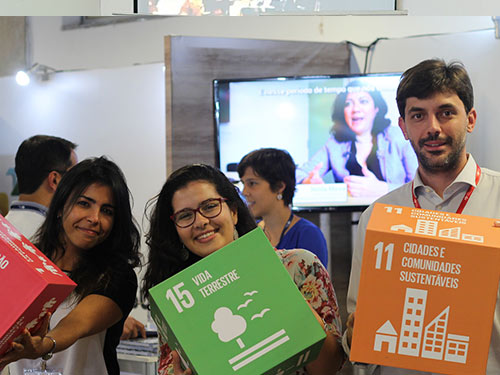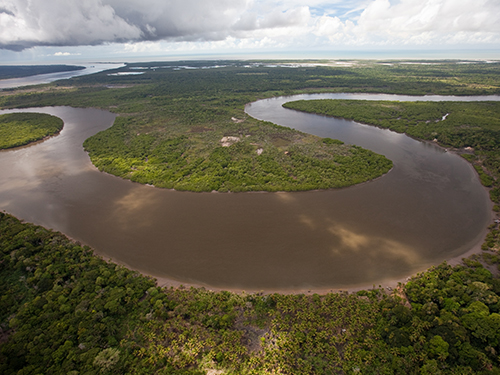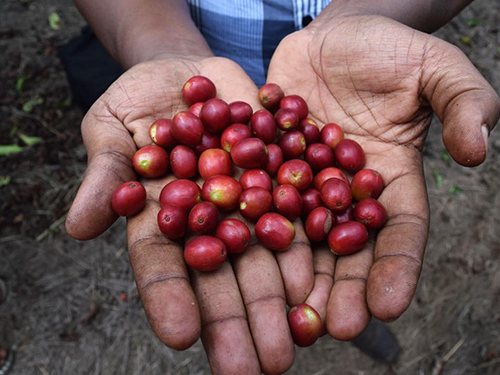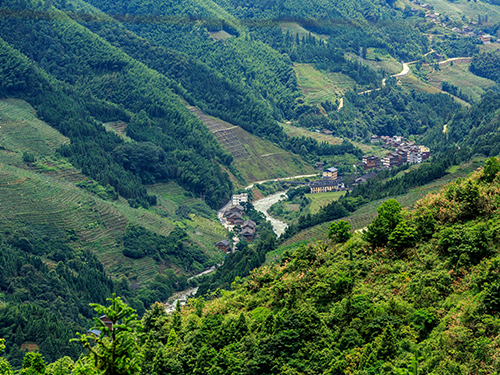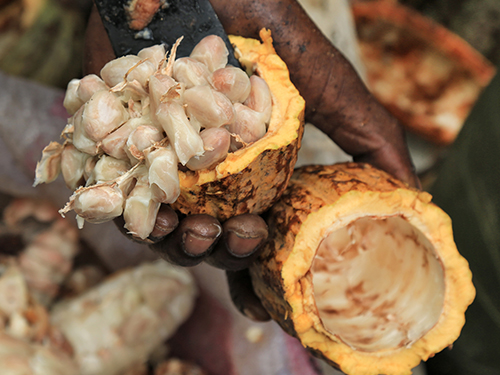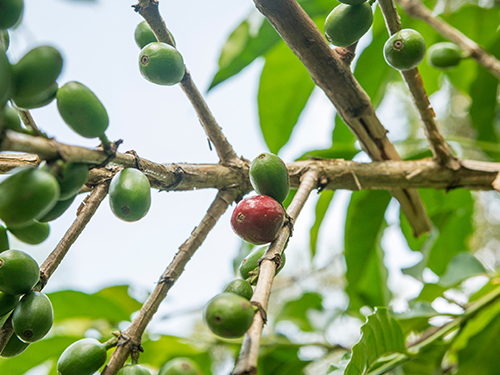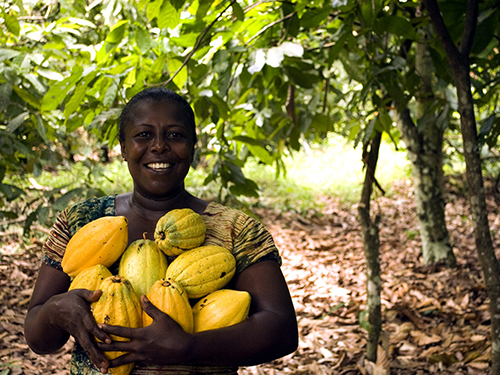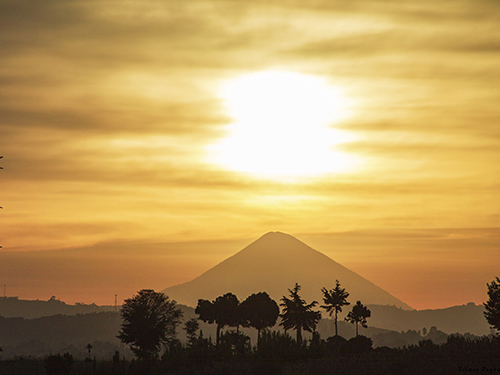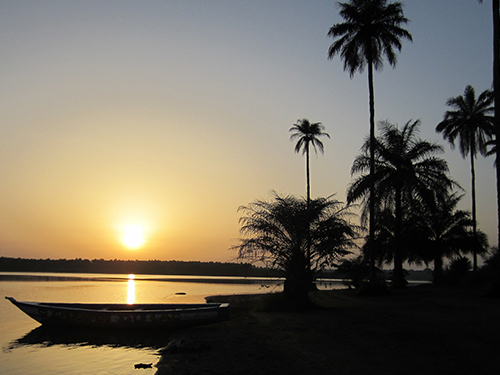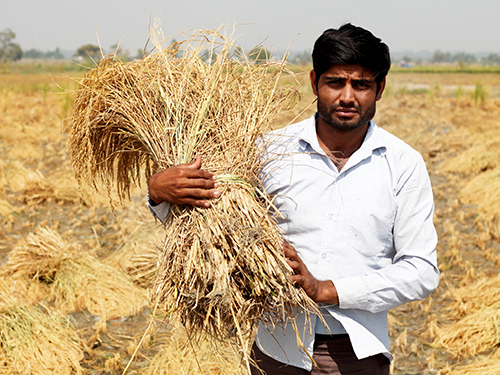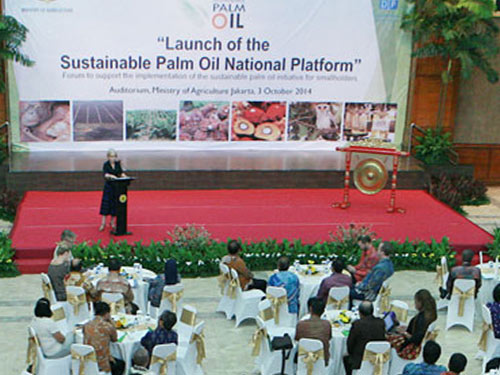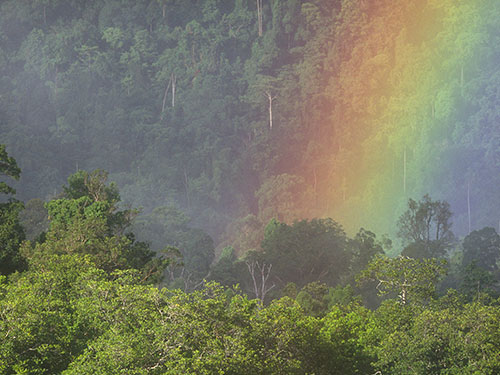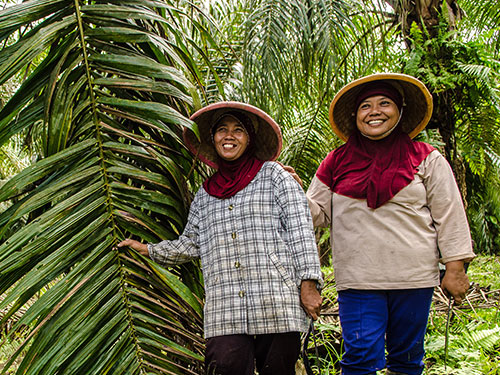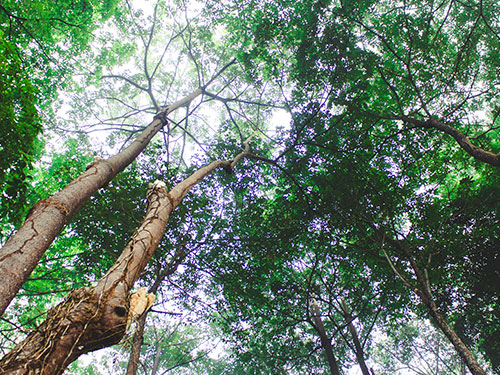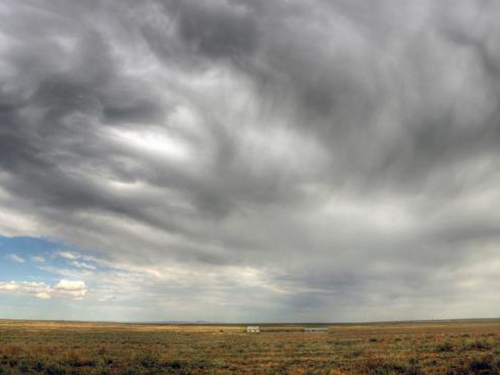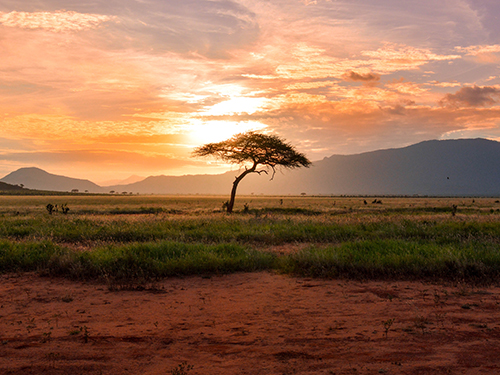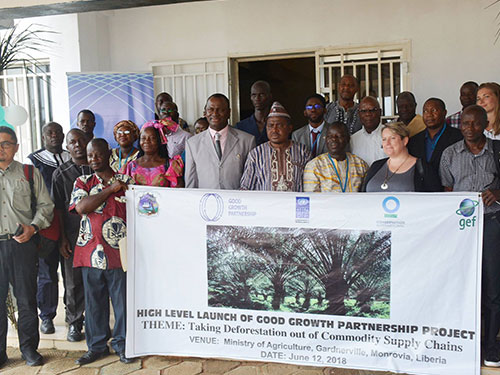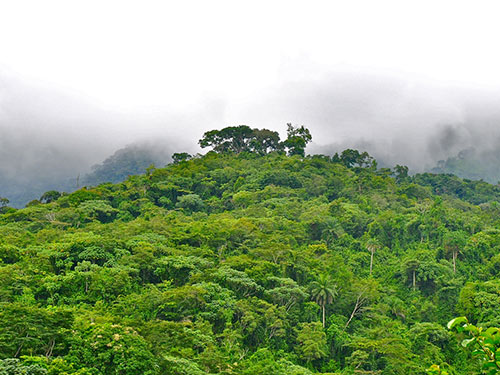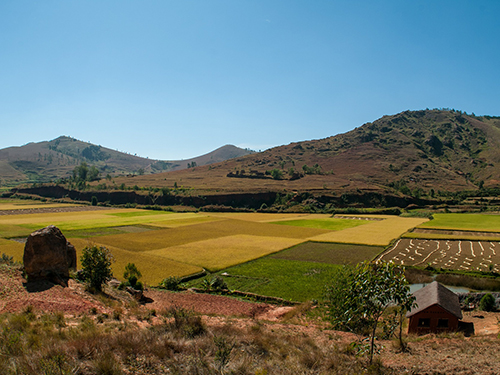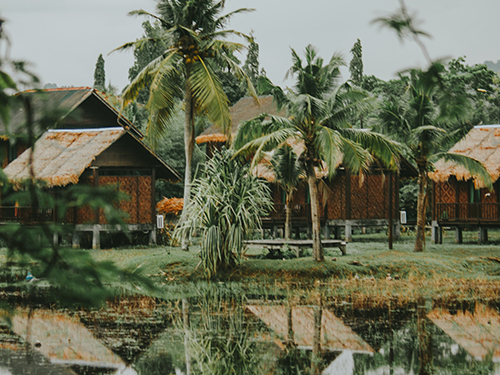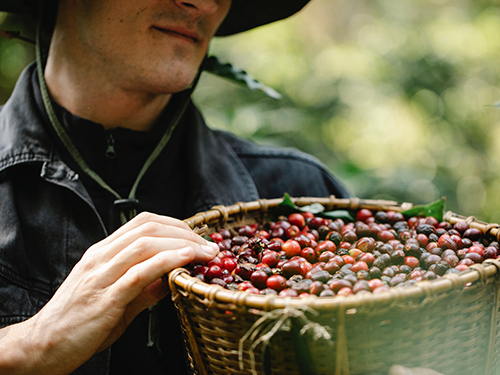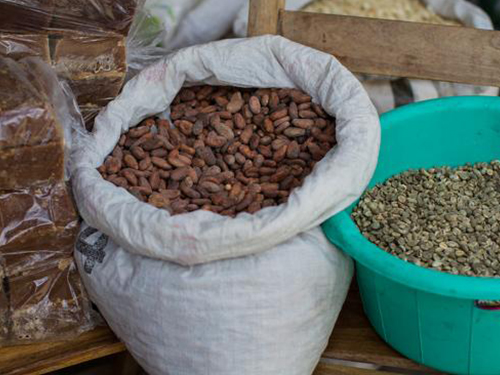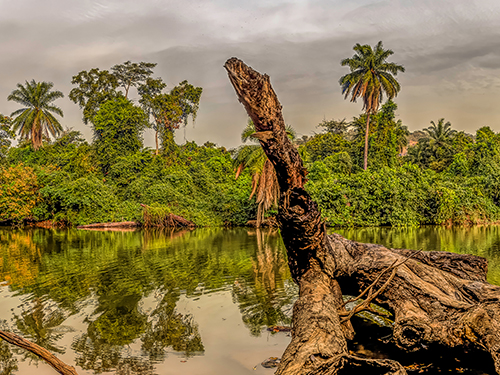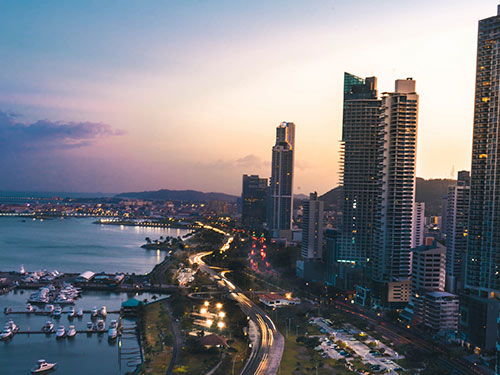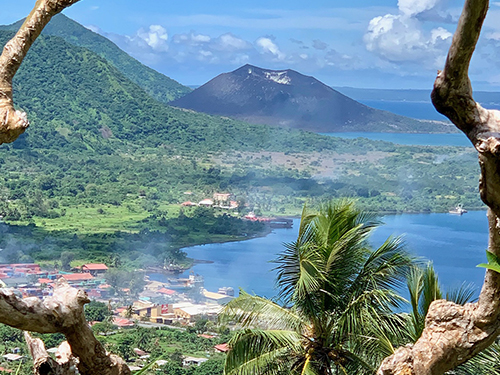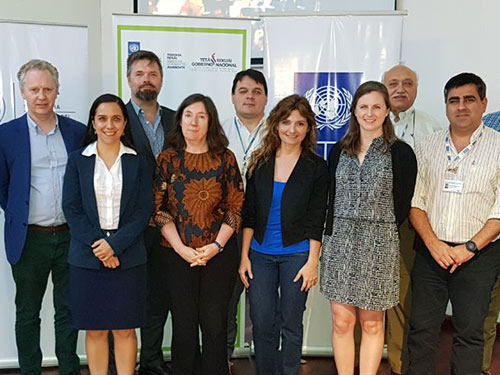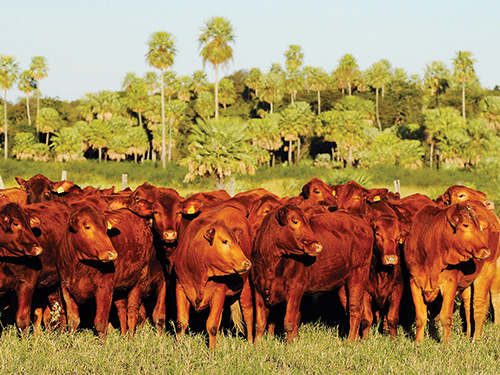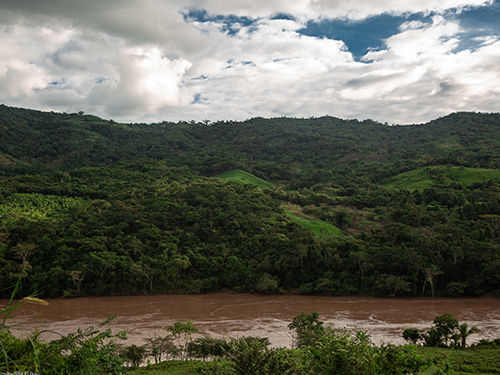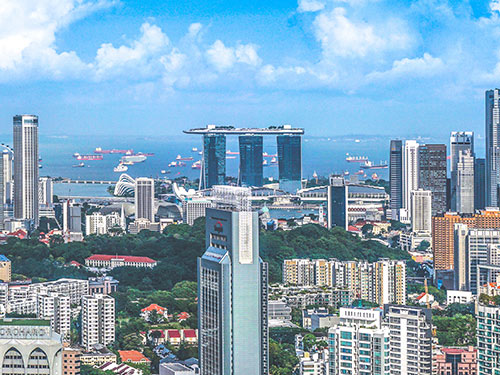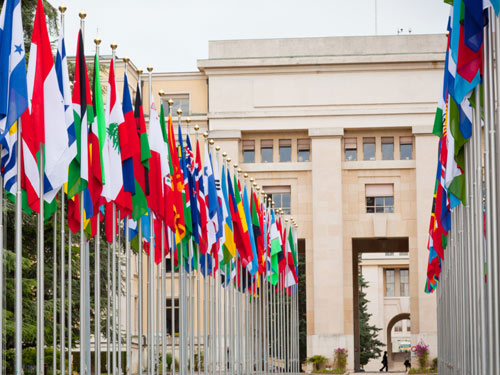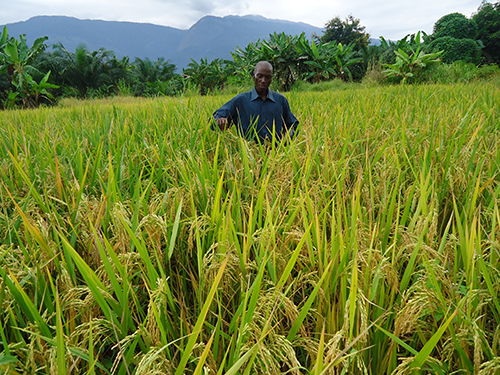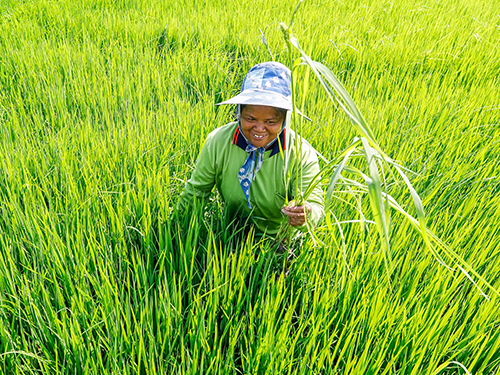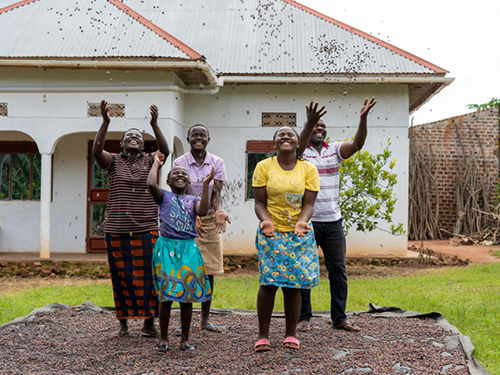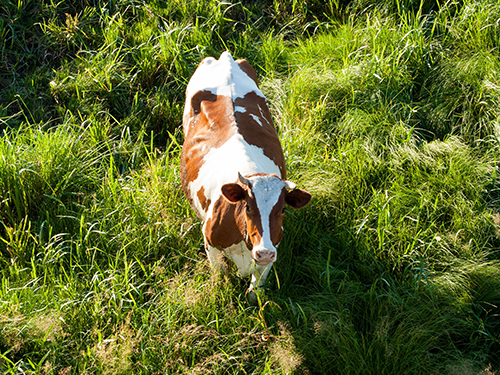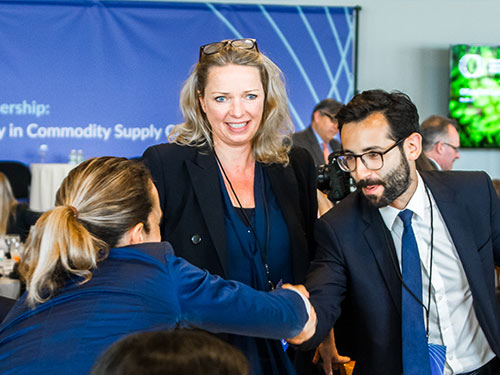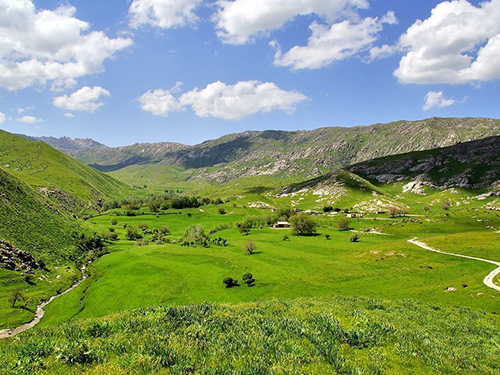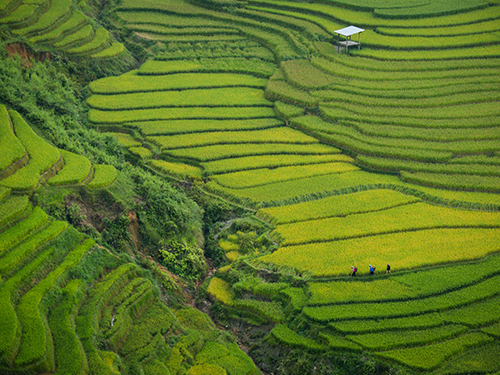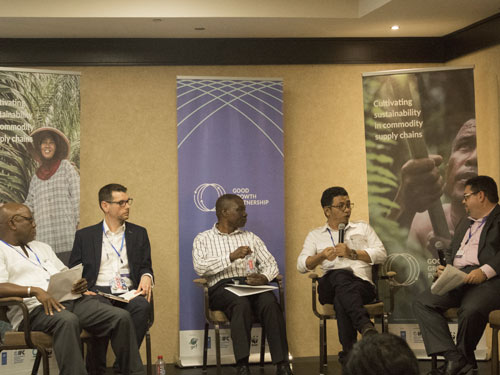The Good Growth Partnership works worldwide to cultivate sustainability in commodity supply chains.
Our efforts on the ground currently focus on four key landscapes: Brazil’s Matopiba region in the country’s extensive tropical savannah known as the Cerrado; important ecosystems in the Indonesian islands of Sumatra and Kalimantan; the biodiversity-rich northwest of Liberia; and the semi-arid Chaco region of Paraguay.
Simultaneously we are working with key buyer and consumer stakeholders throughout commodity markets in the United States as well as in regional hubs and countries including Singapore, China and West Africa to influence responsible demand in Asia and West Africa respectively.
In the United States, Europe and throughout our focus countries the Partnership is focused on engaging major multinational corporations, financial institutions, global banks and public regulators to strengthen global corporate policies and investment standards.




Jakarta, Indonesia
The Good Growth Partnership’s Indonesia team is headquartered in the capital city of Jakarta, the epicentre of Southeast Asia’s largest economy. The Partnership is providing technical support to the government-led Indonesia Sustainable Palm Oil National Action Plan Implementation Team and the national action plan for sustainable palm oil. Alongside this work, WWF is engaging Jakarta-based consumers and multinationals through a series of campaigns and strategies aimed at increasing awareness and demand for sustainable palm oil.
West Kalimantan, Indonesia
West Kalimantan’s tropical rainforest ecosystem includes the Bukit Baka-Bukit Raya National Park, which is home to endangered species such as the Borneo orangutan and the helmeted hornbill. Indigenous groups including the Dayak people of Borneo continue to practice sacred rituals that are central to the forest.
Today, small and large-scale oil palm plantations dominate the province’s economy. The Good Growth Partnership is facilitating multi-stakeholder dialogue and strategies that systemically extend support to small-scale farmers throughout the Sintang District. In partnership with local government agencies, these efforts help shape and reform policy that supports the production of sustainable palm oil throughout the region.
The Partnership is also tracing palm oil from Sintang District to downstream buyers, aiming to increase transparency about the origins of the palm oil ingredients found within consumer products.
Regional consumer awareness campaigns focused on palm oil, which is produced and consumed domestically, are further incentivizing the province’s farmers to shift to better production practices.
North Sumatra, Indonesia
Boasting some of the largest forest cover in Indonesia, North Sumatra features an array of biodiversity and wildlife. The Good Growth Partnership is focusing its efforts on palm oil produced in the South Tapanuli Regency, which is connected to the Batang Toru Forest, an ecosystem significantly threatened by deforestation and land degradation. Among the species found in this region is the critically endangered Tapanuli orangutan.
South Tapanuli’s mountainous landscape imposes significant limitations on agricultural productivity. Despite these unfavourable conditions for cultivation, agriculture makes up roughly one-third of the regency’s economy comprised mostly of coffee, palm oil and rubber crops.
In South Tapanuli, Conservation International is leading the Partnership’s efforts to conduct a series of mapping activities that support local government regulation for go and no-go areas within the region. No-go areas include high biodiversity value areas and eco-corridors which allow vulnerable animals a safe passage to move between protected areas. With support from the Partnership, these go and no-go zones will be integrated into district spatial plans to ensure sustainable development and conservation outcomes over a 20 year period.
Regional multi-stakeholder dialogue is also being facilitated in South Tapanuli. This dialogue informs considerations for the strengthening of regional and national policies that enable and enforce sustainable cultivation of palm oil.
Additionally, the International Finance Corporation (IFC) led a smallholder financing pilot to improve the bankability of 1,000 farmers. Results from this pilot will help to inform wider scale efforts to provide farmers with enough capital to sustainably transform their production practices. The IFC also worked to develop a longer-term financial product that addresses the financial needs of replanting activities and projects in landscapes like South Tapanuli. While there are existing financing models for company supported smallholder farmers, no such product exists for thousands of independent smallholders who do not have formal links to the supply chain.
The Partnership is also tracing palm oil from South Tapanuli to downstream buyers, aiming to increase transparency about the origins of the palm oil ingredients in manufactured products.
In Medan, the capital city of North Sumatra, WWF is rolling out a campaign to heighten awareness and convince local consumers to demand sustainable palm oil in the products they purchase.
Riau Province, Indonesia
Riau is one of the richest provinces in Indonesia and is particularly abundant in petroleum, natural gas, rubber and palm oil. The province tends to grow faster than the Indonesian average, based largely on natural resource derived revenues. Over time this growth has fueled high rates of deforestation.
The Good Growth Partnership is focusing on the District of Pelalawan in Riau. This landscape contains ecosystems with high biodiversity, including the Tesso Nilo dry lowland forest, which has the highest vascular plant diversity of all Sumatran and Indonesian forests. There are several significant biosphere reserves in Riau Province including the Giam Siak Kecil Bukit Batu and Giam Siak Kecil–Bukit Batu Biosphere Reserves.
To conserve the Pelalawan landscape while respecting the region’s economic ambitions, the Good Growth Partnership is working with local government, farmers, businesses, conservation and community stakeholders to support a multi-stakeholder provincial action plan for sustainable palm oil. Additional activities include collecting data about the region’s smallholders to help inform training on good agricultural practices. UNDP is also carrying out spatial data analysis to identify critical land areas of high conservation value throughout the district.
In Riau, the Partnership is also tracing palm oil to downstream buyers, aiming to increase transparency about the origins of the palm oil ingredients in consumer products. In the provincial capital city, Pekanbaru, WWF’s domestic consumer campaign aims to heighten awareness and convince local consumers to demand sustainable palm oil in the products they purchase.
Monrovia, Liberia
Liberia is a relative newcomer to the global palm oil industry but the sector is in the midst of a massive growth phase as companies acquire significant land concessions. The Good Growth Partnership is headquartered in the national capital Monrovia where the team works directly with the Ministry of Agriculture to convene stakeholders to contribute to the National Oil Palm Platform of Liberia (NOPPOL). In addition to this, the Partnership is strengthening land management processes, integrating global sustainability standards and engaging with the international market on issues of responsible trade and investment.
Counties of Grand Cape Mount, Bomi, Gbarpolu and Bong, Liberia
While oil palm development is at a nascent stage in Western Liberia, the Good Growth Partnership is working to promote sustainable production practices that will enable this landscape — which once belted the entire continent — to continue providing social, economic and ecological benefits to the people of Liberia.
Conflicts between communities and palm oil companies have already occurred over land rights and resource use in Western Liberia. The social implications of large-scale land clearance for palm oil are therefore high. This is why the Good Growth Partnership is supporting the government to establish a landscape level forum, encompassing the counties of Bomi, Gbarpolu, Bong and Grand Cape Mount. The forum is working to ensure that the concerns and considerations of local communities are represented in national decision-making, land-use conflicts are addressed and conservation agreements are made.
The densely forested landscape of Western Liberia also provides habitats for globally important biodiversity, such as the endangered pygmy hippo and a variety of monkey species. To protect these vulnerable areas and generate public awareness, the Good Growth Partnership is working to legally define areas of high conservation value (HCV) and high carbon stock (HCS) which will direct development toward locations better suited to oil palm cultivation.
West Africa
In recent decades the forests of West Africa — mostly lowland formations easily accessible from the coast — were largely depleted due to the expansion of agriculture and the drive for economic progress.
In addition to sustainable production and land use planning initiatives in Liberia, the Good Growth Partnership also engages regionally in West Africa and nationally in Sierra Leone to support future markets for sustainable palm oil. By engaging corporate, government and civil society stakeholders in the TFA 2020 Africa Palm Oil Initiative, the Good Growth Partnership facilitated the development and implementation of national principles and action plans for sustainable palm oil in West Africa.
Asuncion, Paraguay
In Paraguay’s capital city of Asuncion, the Good Growth Partnership is working to convene national industry stakeholders to strengthen policy. These efforts are helping to position Paraguay as a leading market for sustainable beef. Simultaneously, the Partnership’s efforts in Asuncion also include engaging major commercial banks and investors through forums like the Roundtable on Sustainable Finance to stimulate and guide responsible investment in the beef sector.
The Chaco, Paraguay
Paraguay’s Chaco region encompasses the entire western portion of the landlocked nation. The vast lowland landscape is home to indigenous tribes and an abundance of wildlife, which includes the endangered jaguar, ocelot and puma.
To ensure that the growth of Paraguay’s beef production is conducted sustainably, with minimal impact to the Chaco region, the Good Growth Partnership is working to intensify production in a sustainable manner, through good agriculture practices, protection of high-conservation value areas and respect for indigenous communities and their way of life. Additionally, the Good Growth Partnership is facilitating a regional sustainable beef dialogue for all concerned stakeholders to agree on a how to develop the beef sector in a sustainable manner.
Within the Chaco, the Good Growth Partnership is focusing on three of the most vulnerable landscapes, including buffer zones and areas adjacent to the Defensores del Chaco National Park, as well as the productive landscape between the Rio Negro National Park and the Cerro Chovoreca Natural Monument.
Brasilia, Brazil
As the capital of the second largest soy and beef trading country by volume, Brasilia provides a strategic regional headquarters for the Partnership as it convenes key government ministries, major soy and beef traders as well as civil society partners. Conservation International, WWF, UNDP, and other partners’ Brasilia offices host staff focused on Matopiba soy production, national and local policy, international demand and sustainable finance.
Matopiba, Cerrado, Brazil
Touted as Brazil’s newest agriculture frontier, Matopiba lies in the heart of the Cerrado, the most biodiverse savannah on the planet. Spread across the states of Maranhão, Tocantins, Piauí and Bahia, the Cerrado covers more than 20 per cent of Brazil, yet is not nearly as recognized as the Amazon despite being one of the largest and most important ecosystems in the country. These wooded grasslands once covered an area half the size of Europe, but its native habitats and rich biodiversity are being destroyed faster than the nearby Amazon rainforest.
To reduce environmental threats in the agricultural frontier and to promote sustainable soy production, the Good Growth Partnership seeks to encourage soy cultivation in already converted or degraded lands, support the creation and implementation of conservation areas and encourage the implementation of Brazil’s Forest Code.
Geneva, Switzerland
Geneva, the European capital for the United Nations, provides important access not only to world government bodies but also to the region’s financial and commodity trading sectors. Through its headquarters in Geneva, the UN Environment Programme is working to engage major investors and European banks as it develops sustainable models and products that incentivize responsible transactions in the Partnership’s focal commodity supply chains.
Washington DC, United States
With close proximity to national government departments, multinational corporations, global civil society organizations and international banks, Washington, DC, is a strategic North American headquarters for many of the Partnership’s agencies which includes WWF, Conservation International, the International Finance Corporation and the program’s primary donor, the Global Environment Facility. In the US capital, partners are engaging major actors in both the public and corporate sectors to influence responsible purchasing and investment decisions as well as private sector commitments to reduce deforestation.
Singapore
There is a growing trend in the global investment community toward screening portfolios for risks associated with harmful environmental practices such as unsustainable commodity production. However, in Southeast Asia, only a small number of investors and regional banks are analyzing risks related to agriculture. The Good Growth Partnership’s demand-investor work — led by WWF in Singapore — directly engages institutional investors to mobilize collective demand for transparency in Asian palm oil supply chains. In this regional finance hub, WWF also works with key stakeholders to train and disseminate guidelines on best practices for sustainable investment.
FOLUR Countries
Through the Food Systems, Land Use and Restoration Impact Program (FOLUR)´s Knowledge to Action (K2A) Global Platform, GGP supports 27 country projects in Brazil, Burundi, Cote d’Ivoire, China, Ethiopia*, Ghana, Guinea, Guatemala*, India, Indonesia*, Kazakhstan*, Kenya, Liberia, Madagascar, Malaysia*, Mexico, Nicaragua, Nigeria, Paraguay, Papua New Guinea*, Peru*, Tanzania, Thailand, Ukraine*, Uzbekistan, Uganda, Vietnam (*led by UNDP).
Country-level work focuses on accelerating transformative action in landscapes and along value chains for eight major commodities, including beef, cocoa, coffee, maize, palm oil, rice, soy, and wheat.
The Good Growth Partnership supports these countries by strengthening their capacity to achieve system change through harnessing the power, knowledge and resources of the private sector, including financial institutions, while facilitating effective multistakeholder collaborative action across geographical scale.
Panama City, Panama
A regional hub for Latin American transit and trade, Panama City is the headquarters for the UNDP Green Commodities Programme, the lead agency for the Good Growth Partnership.


